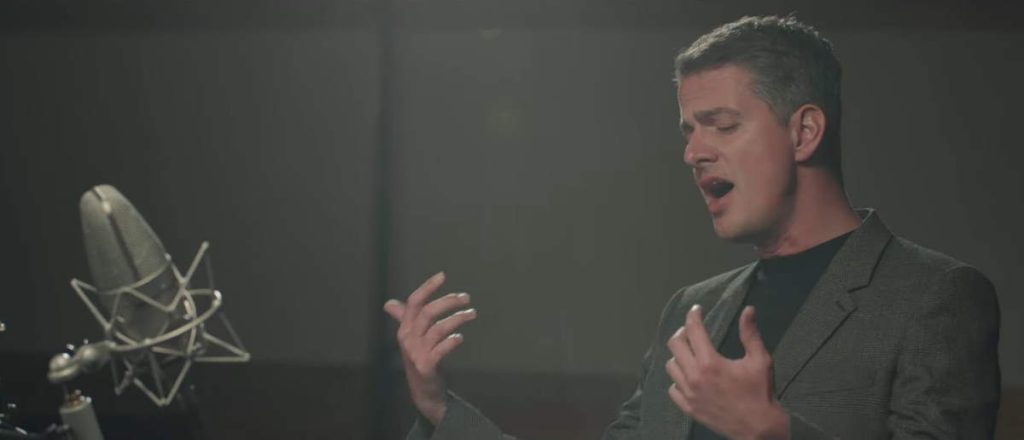Early music ensemble Vivid Consort and the Austrian lutenist David Bergmüller perform Can She Excuse My Wrongs, a late 16th-century song by the English Renaissance composer John Dowland. It is the fifth song in Dowland’s First Booke of Songes or Ayres (Peter Short, London 1597). The words are set to a dance tune, a galliard, a form of Renaissance dance and music popular throughout Europe in the 16th century. Musicians: Christine Gnigler – recorder, vocals, Lorina Vallaster – recorder, vocals, Sheng-Fang Chiu – recorder, David Bergmüller – lute. Recorded in Vienna in 2020.
John Dowland’s Can She Excuse My Wrongs
“Can She Excuse My Wrongs” is a late 16th-century song by English Renaissance composer John Dowland (c. 1563-1626), appearing as the fifth song in his First Booke of Songes or Ayres (1597). The piece is set to a dance tune known as a galliard, a form of Renaissance dance and music popular throughout Europe in the 16th century.
The piece is often associated with Robert Devereux, 2nd Earl of Essex, who was executed for treason in 1601 after rebelling against Elizabeth I. Though sometimes referred to as “The Earl of Essex Galliard,” this title usually denotes an instrumental version scored for viol consort and lute.
The identity of the poet remains uncertain, as Dowland’s lyricists are often anonymous. The tune for “Can She Excuse My Wrongs” appears in the “Dowland Lutebook,” dated before 1594, suggesting the music may have preceded the text. Scholars note that the lyrics’ meter sometimes forces unusual word stresses, indicating they may have been a later addition to the pre-existing tune. The song’s upbeat musical style contrasts with its somber lyrics, reflecting a common Renaissance practice of combining contrasting elements.
Although the lyrics are widely attributed to Essex, this attribution lacks definitive evidence. Essex is a plausible candidate due to his other known poetic works and his association with another lute song, “To plead my faith,” set by Daniel Batcheler. The attribution largely rests on the posthumous dedication of the galliard in Dowland’s 1604 collection Lachrimae, or Seaven Teares, a time when Essex’s rebellion had become less controversial, and James I, sympathetic to Essex’s cause, had restored the title for Essex’s son.
The lyrics present a stereotypical Petrarchan lover, possibly addressing Elizabeth I herself. Essex had previous fallings-out with the Queen, and the song may reflect his political, rather than purely romantic, aspirations. The lover’s banishment theme, a popular motif in Tudor poetry, likely served as a veiled political commentary on courtly intrigues and favor.
Dowland provided multiple performance options for “Can She Excuse My Wrongs.” It is often performed as a lute song by a soloist with lute accompaniment, but it was originally published in a format that allows for performance as a madrigal by a small vocal group (SATB). The piece was accessible to amateur musicians, contributing to the popularity of Dowland’s First Booke of Songes, which sold well and was reprinted multiple times.
Both Dowland and his contemporaries arranged “Can She Excuse My Wrongs” for various instruments. Dowland’s own arrangements include a version for five viols and another for solo lute. In 1609, Thomas Robinson published an arrangement of the song. The piece likely inspired other works, including those found in the Fitzwilliam Virginal Book and Thomas Morley’s First Booke of Consort Lessons (1599).
Dowland’s First Booke of Songes was reprinted in the 19th century by the Musical Antiquarian Society and played a significant role in the early music revival. His music, including “Can She Excuse My Wrongs,” remains relatively accessible to modern audiences while drawing on the older modal traditions rather than the modern key system.
“Can She Excuse My Wrongs” lyrics
Can she excuse my wrongs with Virtue’s cloak?
Shall I call her good when she proves unkind?
Are those clear fires that vanish into smoke?
Must I praise the leaves where no fruit I find?
No, no; where shadows do for bodies stand,
That may’st be abus’d if thy sight be dim.
Cold love is like to words written on sand,
Or to bubbles which on the water swim.
Wilt thou be thus abused still,
Seeing that she will right thee never?
If thou canst not o’ercome her will,
Thy love will be thus fruitless ever.
Was I so base, that I might not aspire
Unto those high joys which she holds from me?
As they are high, so high is my desire,
If she this deny, what can granted be?
If she will yield to that which reason is,
It is reason’s will that love should be just.
Dear, make me happy still by granting this,
Or cut off delays if that I die must.
Better a thousand times to die
Than for to love thus still tormented:
Dear, but remember it was I
Who for thy sake did die contented?
Sources
- Can She Excuse My Wrongs on Wikipedia

